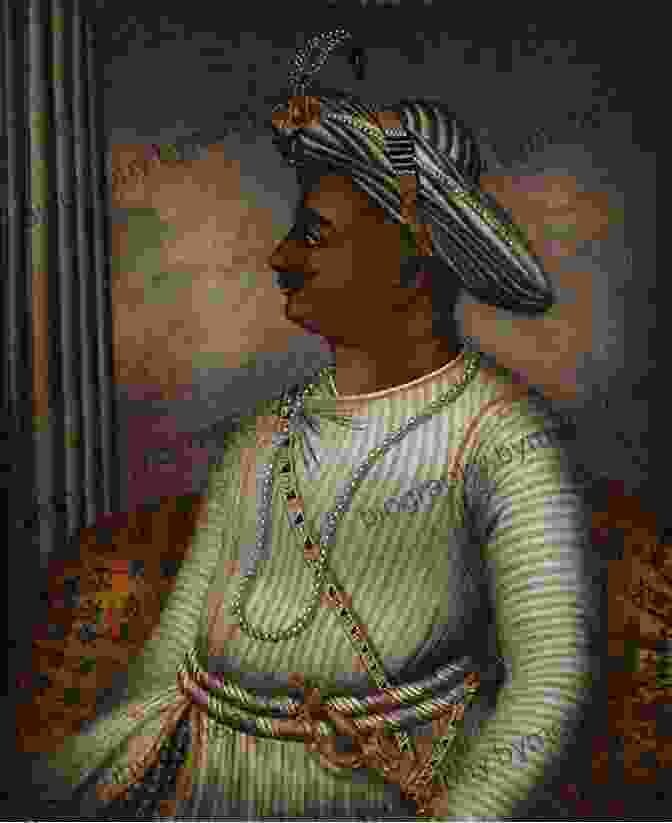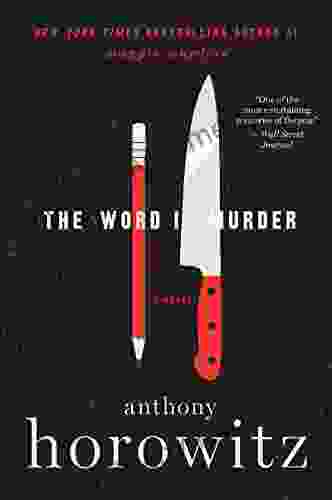The Life and Legacy of India's Most Controversial King


4.1 out of 5
| Language | : | English |
| File size | : | 5451 KB |
| Text-to-Speech | : | Enabled |
| Screen Reader | : | Supported |
| Enhanced typesetting | : | Enabled |
| Word Wise | : | Enabled |
| Print length | : | 153 pages |
Tipu Sultan, the ruler of Mysore from 1782 to 1799, is one of the most enigmatic and controversial figures in Indian history. A brilliant military strategist and a staunch defender of his kingdom, he is also remembered for his religious intolerance and his role in the Anglo-Mysore Wars.
Born in 1750 to the Hyder Ali, the sultan of Mysore, Tipu Sultan was groomed from a young age to be a warrior. He received a thorough education in military tactics and strategy, and he quickly rose through the ranks of his father's army. By the time he was 20 years old, he was leading his own campaigns against the British and their allies.
Tipu Sultan's military prowess was undeniable. He was a master of guerrilla warfare, and he used his knowledge of the terrain to great advantage against his enemies. He also introduced a number of innovative military technologies, including the use of rockets and iron-cased artillery. As a result of his military successes, Tipu Sultan expanded the boundaries of Mysore and established himself as one of the most powerful rulers in India.
However, Tipu Sultan's reign was also marked by religious intolerance. He was a devout Muslim, and he sought to impose his religion on his subjects. He destroyed Hindu temples, forced conversions to Islam, and persecuted Christians. His religious policies alienated many of his Hindu subjects, and they eventually contributed to his downfall.
In 1799, Tipu Sultan was killed in battle against the British. His death marked the end of the Mysore kingdom, and it paved the way for British rule in India. Tipu Sultan's legacy is still debated today. Some historians view him as a hero who fought for his country's independence, while others see him as a tyrant who oppressed his people.
Early Life and Military Career
Tipu Sultan was born in Devanahalli, Mysore, on November 10, 1750. His father, Hyder Ali, was a military commander who rose to become the sultan of Mysore. Tipu Sultan received a thorough education in military tactics and strategy, and he quickly rose through the ranks of his father's army. By the time he was 20 years old, he was leading his own campaigns against the British and their allies.
Tipu Sultan's military prowess was undeniable. He was a master of guerrilla warfare, and he used his knowledge of the terrain to great advantage against his enemies. He also introduced a number of innovative military technologies, including the use of rockets and iron-cased artillery. As a result of his military successes, Tipu Sultan expanded the boundaries of Mysore and established himself as one of the most powerful rulers in India.
Religious Policies
Tipu Sultan was a devout Muslim, and he sought to impose his religion on his subjects. He destroyed Hindu temples, forced conversions to Islam, and persecuted Christians. His religious policies alienated many of his Hindu subjects, and they eventually contributed to his downfall.
Tipu Sultan's religious intolerance was motivated by a number of factors. First, he believed that it was his duty as a Muslim ruler to spread Islam. Second, he saw Hinduism as a threat to his political authority. He feared that if his Hindu subjects were allowed to practice their religion freely, they would eventually rebel against his rule.
Tipu Sultan's religious policies had a devastating impact on his kingdom. They alienated many of his Hindu subjects, and they contributed to the rise of the British East India Company. The British were able to exploit the religious tensions in Mysore to their own advantage, and they eventually defeated Tipu Sultan and annexed his kingdom.
Military Innovations
Tipu Sultan was a brilliant military strategist, and he introduced a number of innovative military technologies. He was one of the first rulers in the world to use rockets in warfare. He also developed a new type of iron-cased artillery that was far superior to the cannons used by the British. Tipu Sultan's military innovations gave him a significant advantage over his enemies, and they helped him to expand the boundaries of Mysore.
One of Tipu Sultan's most famous military innovations was the use of rockets. He developed a new type of rocket that was more accurate and had a longer range than any previous rocket. Tipu Sultan's rockets were used to great effect against the British, and they helped him to win several important battles.
Tipu Sultan also developed a new type of iron-cased artillery. This artillery was much more powerful and durable than the cannons used by the British. Tipu Sultan's iron-cased artillery gave him a significant advantage in battle, and it helped him to defeat the British in several major battles.
Death and Legacy
Tipu Sultan was killed in battle against the British on May 4, 1799. He was 49 years old. His death marked the end of the Mysore kingdom, and it paved the way for British rule in India. Tipu Sultan's legacy is still debated today. Some historians view him as a hero who fought for his country's independence, while others see him as a tyrant who oppressed his people.
Tipu Sultan was a complex and controversial figure. He was a brilliant military strategist and a staunch defender of his kingdom. However, he was also a religious intolerant who persecuted his Hindu subjects. Tipu Sultan's legacy is a reminder of the複雑 and often contradictory nature of history.
Tipu Sultan was one of the most enigmatic and controversial figures in Indian history. He was a brilliant military strategist and a staunch defender of his kingdom. However, he was also a religious intolerant who persecuted his Hindu subjects. Tipu Sultan's legacy is still debated today, but he remains one of the most fascinating and important figures in Indian history.
4.1 out of 5
| Language | : | English |
| File size | : | 5451 KB |
| Text-to-Speech | : | Enabled |
| Screen Reader | : | Supported |
| Enhanced typesetting | : | Enabled |
| Word Wise | : | Enabled |
| Print length | : | 153 pages |
Do you want to contribute by writing guest posts on this blog?
Please contact us and send us a resume of previous articles that you have written.
 Book
Book Novel
Novel Page
Page Chapter
Chapter Text
Text Story
Story Genre
Genre Reader
Reader Library
Library Paperback
Paperback E-book
E-book Magazine
Magazine Newspaper
Newspaper Paragraph
Paragraph Sentence
Sentence Bookmark
Bookmark Shelf
Shelf Glossary
Glossary Bibliography
Bibliography Foreword
Foreword Preface
Preface Synopsis
Synopsis Annotation
Annotation Footnote
Footnote Manuscript
Manuscript Scroll
Scroll Codex
Codex Tome
Tome Bestseller
Bestseller Classics
Classics Library card
Library card Narrative
Narrative Biography
Biography Autobiography
Autobiography Memoir
Memoir Reference
Reference Encyclopedia
Encyclopedia Ayn Cates Sullivan
Ayn Cates Sullivan David N Blank Edelman
David N Blank Edelman Arthur Bochner
Arthur Bochner Pamela Timms
Pamela Timms Anna Flores Locke
Anna Flores Locke Peter Tonguette
Peter Tonguette Julia Cook
Julia Cook Christian Keur
Christian Keur Paul Andrews
Paul Andrews Annette Whipple
Annette Whipple Jacqueline Dembar Greene
Jacqueline Dembar Greene Pat Falvey
Pat Falvey Arthur Scott Bailey
Arthur Scott Bailey Anthony J Onwuegbuzie
Anthony J Onwuegbuzie Annye C Anderson
Annye C Anderson Theodore Menten
Theodore Menten Marck Vaisman
Marck Vaisman Annette Insdorf
Annette Insdorf Arthur Murray
Arthur Murray Kajal Gupta
Kajal Gupta
Light bulbAdvertise smarter! Our strategic ad space ensures maximum exposure. Reserve your spot today!

 Harold BlairHow We Created Our Family: An Unforgettable Story of Love, Resilience, and...
Harold BlairHow We Created Our Family: An Unforgettable Story of Love, Resilience, and... Nick TurnerFollow ·18.8k
Nick TurnerFollow ·18.8k Noah BlairFollow ·11.8k
Noah BlairFollow ·11.8k Alex ReedFollow ·19.2k
Alex ReedFollow ·19.2k W.B. YeatsFollow ·18.2k
W.B. YeatsFollow ·18.2k Bryan GrayFollow ·5.4k
Bryan GrayFollow ·5.4k Henry David ThoreauFollow ·8.4k
Henry David ThoreauFollow ·8.4k Darren NelsonFollow ·3.3k
Darren NelsonFollow ·3.3k Ivan TurnerFollow ·17.3k
Ivan TurnerFollow ·17.3k

 Juan Rulfo
Juan RulfoThe Easy Ingredient Ketogenic Diet Cookbook: Your...
Embark on a culinary adventure that...

 Zachary Cox
Zachary CoxDepression Hates a Moving Target: A Groundbreaking...
Depression...

 Colin Richardson
Colin RichardsonUnleash Your Spine-Tingling Curiosity: Dive into the...
In the realm of...

 Evan Hayes
Evan HayesMarketing Fashion Portfolio: The Ultimate Guide to...
In the competitive world of fashion, it is...
4.1 out of 5
| Language | : | English |
| File size | : | 5451 KB |
| Text-to-Speech | : | Enabled |
| Screen Reader | : | Supported |
| Enhanced typesetting | : | Enabled |
| Word Wise | : | Enabled |
| Print length | : | 153 pages |














